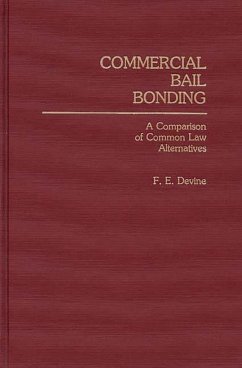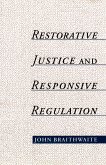The first comprehensive, international comparison of bail, this book examines how common-law countries condemn or provide alternatives to the American commercial bail bonding system. In his analysis of bail systems in 15 countries, F. E. Devine explains why other common-law countries consider the commercial provision of bail an obstruction of justice, and how they provide effective alternatives. Devine examines the pre-trial release alternatives in detail, arguing that they are at least as effective as commercial bail bonding.
Devine provides a complete, comparative analysis of bail in Australia, Canada, England, India, New Zealand and South Africa. He also examines the systems of Ireland, Malaysia, Nigeria, Pakistan, Papua New Guinea, Scotland, Tanzania, Zambia and Zimbabwe. He details the prohibition of, and statutory provisions against, commercial bail in these common-law countries, and then highlights four alternative approaches to pre-trial release: recognizance, criminal penalties, non-financial conditions, and non-commercial financial security deposits. Devine argues that these options are as effective as commercial bail. This book is valuable to scholars of criminal justice, criminology, comparative law, political science, and sociology, and to criminal justice reformers and professionals.
Devine provides a complete, comparative analysis of bail in Australia, Canada, England, India, New Zealand and South Africa. He also examines the systems of Ireland, Malaysia, Nigeria, Pakistan, Papua New Guinea, Scotland, Tanzania, Zambia and Zimbabwe. He details the prohibition of, and statutory provisions against, commercial bail in these common-law countries, and then highlights four alternative approaches to pre-trial release: recognizance, criminal penalties, non-financial conditions, and non-commercial financial security deposits. Devine argues that these options are as effective as commercial bail. This book is valuable to scholars of criminal justice, criminology, comparative law, political science, and sociology, and to criminal justice reformers and professionals.









